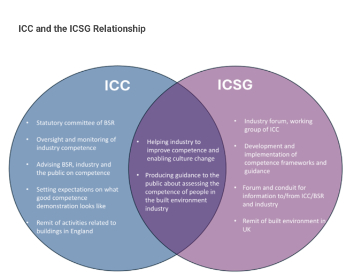Impact of labour shortages worsen for engineering services
Contents |
[edit] Industry survey
The latest engineering services industry survey, backed by leading trade bodies ECA, BESA, SELECT and SNIPEF, shows the growing impact rising labour shortages are having on business owners in the sector. This is having a clear knock-on effect on their business performance.
Almost half (42%) of respondents said labour shortages were the biggest concern for their businesses – up from a quarter (26%) in Q3 2022 and a third (32%) in Q4 2022.
Worries about cash-flow and payment times persist – almost a quarter (23%) of respondents expect their turnover to decrease in Q2 2023, and 40% expect it to stagnate.
While many respondents’ businesses saw revenues rise over the winter, with 40% reporting an increase in turnover between Q4 2022 and Q1 2023, optimism may be offset by the fact that two thirds (59%) of SMEs said that between 1 and 5% of their turnover is currently being held in retentions – a notable increase from an already worrying 53% when last surveyed in January 2023.
[edit] Comments
ECA Director of Legal and Business Rob Driscoll said,
“The construction sector is feeling the impact of events that were set in motion following the Brexit vote, the pandemic, and the war in Ukraine. Right now, we are coming to the end of fixed price contracts which have seen firms squeezed by inflation rates of more than 23 percent on materials.Rising interest rates have caused a crash in the private housing sector, inflation has reduced spending in the public sector, and infrastructure costs are being reviewed . Increasingly, payments are being delayed to shore up finances when bank lending becomes unaffordable or unavailable. SMEs unfortunately sit at the sharp end of these factors. They lack the financial cushioning that allows bigger players to ride out these adverse business conditions. Despite this, the M&E sector remains resilient as RMI increases and construction drops.”
BESA Director of Legal and Commercial Debbie Petford said,
"The picture painted by our latest survey illustrates the direct link between cashflow and business optimism. Retentions and late payment are a serious drag on business growth which is exacerbated by the skills shortage. The fact that firms have a high number of vacancies shows there is plenty of pent-up demand for building services expertise, but firms are struggling to find suitably qualified staff and are too busy chasing payment to be able to fully invest in training, recruitment and staff retention. As usual, we find ourselves praising contractors' resilience in the face of these challenges, but we need more action from government to address the continuing curse of late payment. Freeing up cashflow would allow SMEs to dedicate more time and resource to things that matter to the wider economy like improving our built environment and delivering net zero”.
Over half (54%) of sector businesses reported vacancies in their organisations. When asked why they had trouble filling these vacancies, most businesses (54%) cited an insufficient supply of applicants, followed by a lack of appropriate skills (48%) and unaffordable pay expectations (43%).
[edit] Survey details
142 engineering services businesses responded to the Q1 2023 Building Engineering Business Survey (BEBS), which asked about their business performance in Q1 2023 and their expectations for Q2 2023 and beyond.
The survey was carried out in partnership with industry trade bodies BESA, SELECT, and SNIPEF, who together represent over 6,000 businesses of all sizes across the built environment sector, and is sponsored by Scolmore.
The survey ran from April 18 to May 2, 2023.
This article was issued via Press Release and ECA website news as "Impact of labour shortages worsen for engineering services " dated may 22, 2023.
--ECA
[edit] Related articles on Designing Buildings
- Apprenticeships levy.
- CIOB responds to skills strategy for Northern Ireland.
- Construction Industry Training Board CITB.
- Consultancy vs contingent labour.
- Diversity in the construction industry.
- Engineering services and industry recovery guide.
- Flexible working in engineering services.
- Is social media the new way to plug the gender skills gap?
- National Infrastructure Plan for Skills.
- Protection for apprenticeships.
- Skilled workforce unable to meet net zero ambitions.
- Skills shortage.
- Skills shortage and Brexit.
- Skills shortages lead to wages rise.
- Skills strategy for Northern Ireland.
- Student resources.
- Tackling the construction skills shortage.
Featured articles and news
Twas the site before Christmas...
A rhyme for the industry and a thankyou to our supporters.
Plumbing and heating systems in schools
New apprentice pay rates coming into effect in the new year
Addressing the impact of recent national minimum wage changes.
EBSSA support for the new industry competence structure
The Engineering and Building Services Skills Authority, in working group 2.
Notes from BSRIA Sustainable Futures briefing
From carbon down to the all important customer: Redefining Retrofit for Net Zero Living.
Principal Designer: A New Opportunity for Architects
ACA launches a Principal Designer Register for architects.
A new government plan for housing and nature recovery
Exploring a new housing and infrastructure nature recovery framework.
Leveraging technology to enhance prospects for students
A case study on the significance of the Autodesk Revit certification.
Fundamental Review of Building Regulations Guidance
Announced during commons debate on the Grenfell Inquiry Phase 2 report.
CIAT responds to the updated National Planning Policy Framework
With key changes in the revised NPPF outlined.
Councils and communities highlighted for delivery of common-sense housing in planning overhaul
As government follows up with mandatory housing targets.
CIOB photographic competition final images revealed
Art of Building produces stunning images for another year.
HSE prosecutes company for putting workers at risk
Roofing company fined and its director sentenced.
Strategic restructure to transform industry competence
EBSSA becomes part of a new industry competence structure.
Major overhaul of planning committees proposed by government
Planning decisions set to be fast-tracked to tackle the housing crisis.
Industry Competence Steering Group restructure
ICSG transitions to the Industry Competence Committee (ICC) under the Building Safety Regulator (BSR).
Principal Contractor Competency Certification Scheme
CIOB PCCCS competence framework for Principal Contractors.
The CIAT Principal Designer register
Issues explained via a series of FAQs.

























